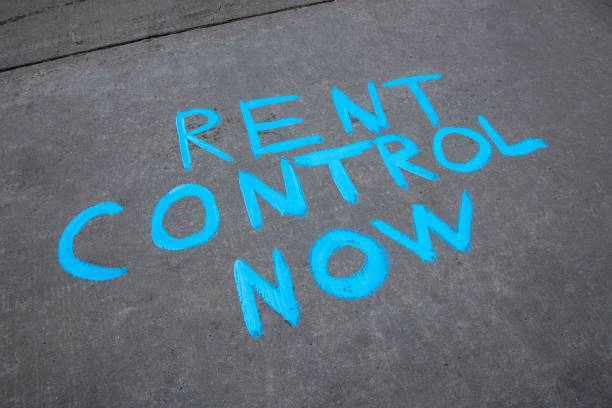Voters in Minneapolis approved giving the city council the authority to implement rent control through an ordinance. However, two years later rent control policies have yet to be enacted as the future of Minneapolis’ rent control remains uncertain.

Minneapolis’ Rent Control is still an ongoing issue which needs to be addressed. (Photo by: Michael Siluk/Universal Images Group via Getty Images)
According to next city website, in November 2021, when Minneapolis residents exercised their voting rights and granted their city council the authority to develop a Minneapolis’ rent control ordinance with a majority of 53%, they likely anticipated that the ordinance would be prepared for their review and approval by now. However, it has been two years since then, and the earliest possibility for the reintroduction of Minneapolis rent control policy to the voters is in 2024. The actual implementation of such a policy would take even longer, extending the timeline further into the future.
In June 28, a complex and ongoing Minneapolis’ rent control issue in the Twin Cities reached a significant turning point. During a city council meeting coinciding with the religious holiday of Eid al-Adha, three Muslim council members were absent, leading to a crucial vote of 5-4 against advancing a draft ordinance to committee. This procedural hurdle effectively prevents a ballot proposal from being presented to voters this November, which had been the hope of some individuals involved in the matter.
The three council members who were absent – Jeremiah Ellison, Jamal Osman, and Aisha Chughtai – are all advocates of rent control. Chughtai and Osman were responsible for formulating the Minneapolis’ rent control policy in question, based on recommendations from a working group. Their presence at the meeting would have ensured that the policy progressed to the next stage in the decision-making process.
The opposition of council members to any rent stabilization ordinance was further strengthened by events in neighboring St. Paul. In St. Paul, a Minneapolis’ rent control policy approved by voters in 2021 was weakened by legislators after developers started withdrawing building permits in large numbers.
Originally scheduled for June 28 to allow the three Muslim council members to participate, the date of the vote had to be changed due to the shifting date of Eid al-Adha, which occurred 10 days before the meeting. Despite the insistence of council members and the city clerk that they had no choice but to proceed with the vote, members of a working group formed to recommend the Minneapolis’ rent control policy disagreed. They expressed their disapproval in a strongly worded open letter to Mayor Jacob Frey and city council president Andrea Jenkins, criticizing the council for proceeding with the vote.
The letter stated that the vote took place on Eid al-Adha, a significant Islamic holiday symbolizing sacrifice and service to a higher cause. The Twin Cities have a substantial Muslim population, estimated at 200,000 residents in the state.
According to the letter, the vote was criticized as Islamophobic, undemocratic, and a mere political maneuver. It accused Jenkins and other council members of using procedural tactics to push through the vote, labeling it an act of bias against Muslims. The letter also highlighted the deprivation of voting rights for three Muslim council members and their constituents.
Council president Jenkins, who supported advancing the measure to committee, expressed regret for the absence of the three council members but emphasized the need to continue the city council’s work. She explained that scheduling the meeting on Eid al-Adha was an attempt to accommodate the Muslim members, unaware that the date of the holiday would change. Despite the circumstances, Jenkins emphasized the importance of moving forward with the council’s tasks.
SEE MORE: 8 Years In Prison Is Given To Lauren Pazienza, After Entering A Guilty Plea To The Murder Of An 87-Year-Old Vocal Coach
How did the tide change?
In June 2022, the city council formed a working group consisting of 25 individuals, including tenant advocates, developers, and property owners. Their objective was to analyze and propose recommendations for a rent stabilization policy.
Over a period of three months, the group convened and voted on various Minneapolis’ rent control policy frameworks. Only one framework garnered a majority vote, receiving 56% support. This particular framework resembled a rent stabilization policy implemented in St. Paul in November 2021, which limited annual rent increases to 3% without any exceptions for new construction. (However, the St. Paul policy has since been modified to include exemptions for new construction.)
However, when the council received this recommendation in December 2022, Frey publicly declared that he would veto it if it reached his desk, effectively preventing the question from appearing on the ballot. This immediate opposition from Frey upset the working group members, who were concerned that the mayor had dismissed their recommendation without any consideration. In an open letter written in April, the working group members expressed their disappointment, stating that they had expected a more thorough and thoughtful review of their work, especially considering the complex Minneapolis’ rent control policy issues involved.
Despite this, council members Chughtai and Osman proceeded to draft legislation based on the recommendation’s framework, with the next step being to send it to a committee for further discussion and debate, as decided in the June 28 vote.
SEE MORE: Texas Supplemental Nutrition Assistance Program (SNAP) Payments For September, Which Could Total $1,691, Will Start In 10 Days
























